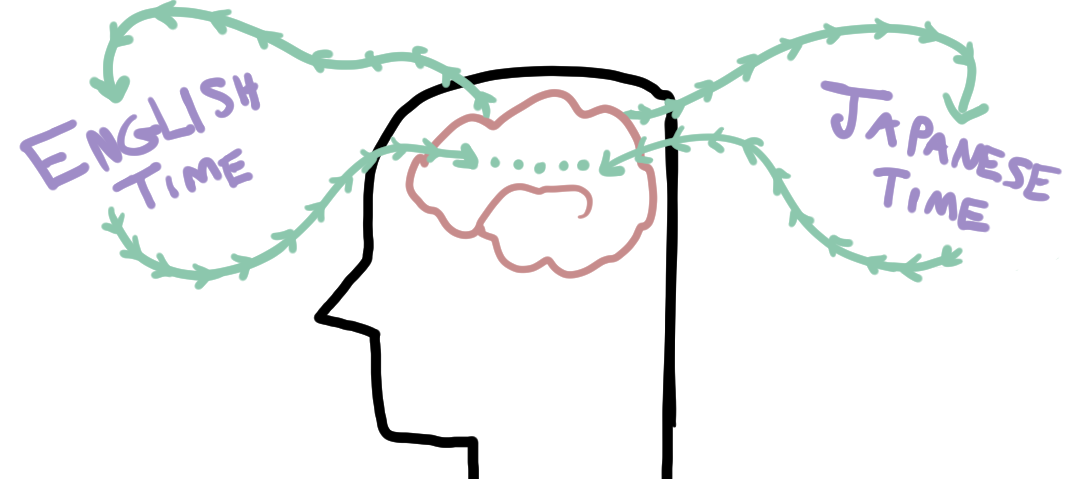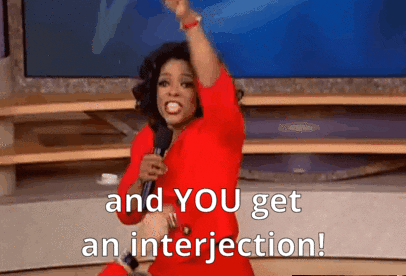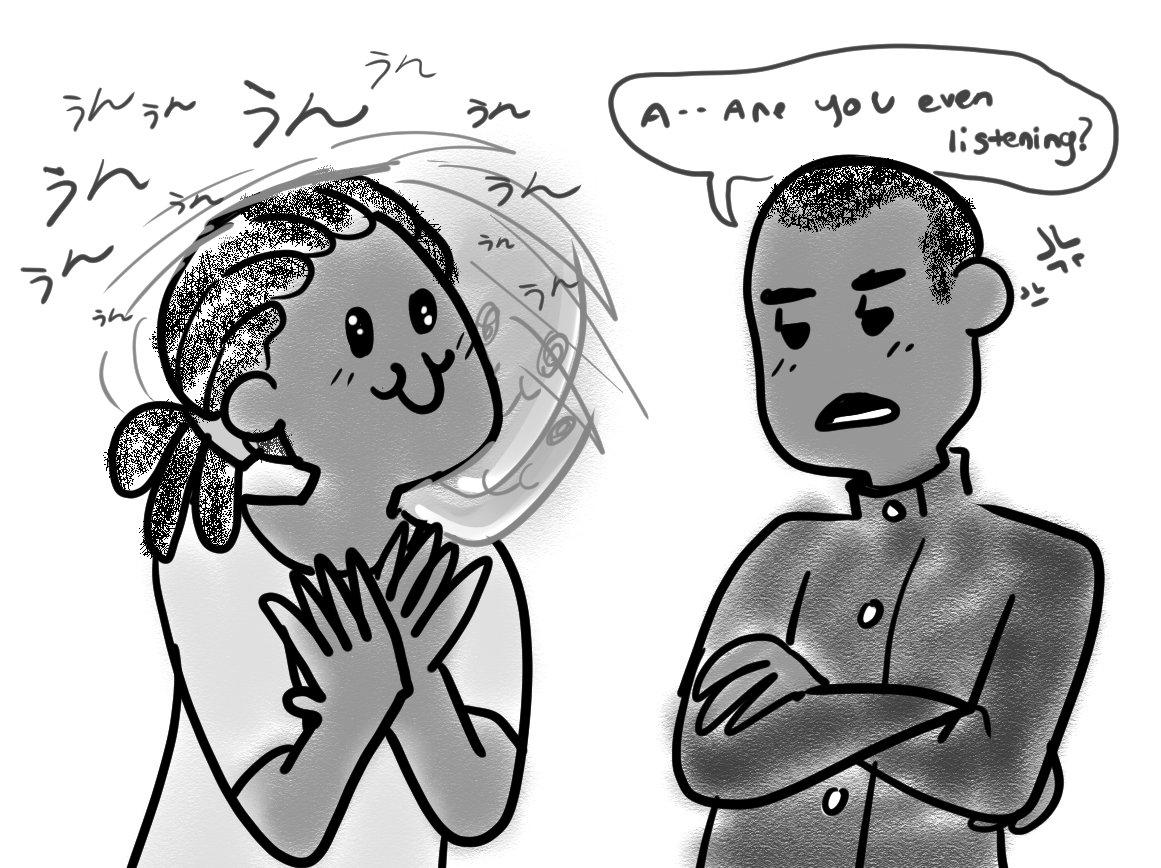Give your speech an injection of interjections! The normal filler words, phrases, and sounds we make during everyday conversation are just as important for learning Japanese as saying please and thank you.
This insight was originally published on August 03, 2021, and transferred here later.
When I talk, I often find that I say a lot of "um"s and "uh"s. These are a type of "interjection".
For me, I generally do it because I am looking to find a little extra time while I attempt finding the name for a word forgot. I do that a lot; it is kind of my thing 😎. Most people use interjections in their own way during a conversation. It is such a common occurrence, in fact, that people even do it in many different languages!
Make interjections a regular part of your day!
Normally a person might tell you to use less interjections in your speeches and conversations. I don't think the same can be said for when you are learning a language though. You should make a point of using Japanese interjections like these more! Why?
Well, if you are speaking Japanese and then keep switching to "uh"s and "um"s in English, it interrupts the natural flow of using the language in both your speech and how your brain works with it. You will do this; it is a pretty second-nature thing we do. Because of that though, your mind will always be clinging to English as its go-to way of understanding and processing information. Using a language's interjections can help you better transition your speech to flow naturally by making sure you keep thinking in Japanese mode when you speak it. No need for interruptions by your English (or other native language) brain!
Let's learn some Japanese interjections
Filler words
These are the words you might be tempted to use while filling empty space in a conversation. Words like the "uh"s and "um"s I was talking about before!
えっと (etto)
This is usually considered an equivalent to the English "um" or "uh". You'll often find this sprinkled in the conversation of a person looking for time to find the words for what they are trying to say. Personally, I'm an えっと simp.
あの (ano)
This one is also considered an equivalent to the English "um" or "uh". The difference between あの and えっと is often murky to people without more context, but more often than not it feels like it is used to lubricate the conversation with slightly more tact. There is an implication that you know what you want to say, but are trying to word it appropriately.
うーん (uun)
This is a thinking & pondering interjection, equivalent to the English "hmm".
Conversational responses
These are usually words that continue the conversation or indicate attentive participation in the conversation.
じゃあ (jaa)
This is similar to saying something like "well then, ..." or "so then, ...". The above 3 interjections could be scattered more freely throughout your conversation, but this one usually marks the thought you say next as an important piece of the conversation.
うん / はい / ええ (un / hai / ee)
Often accompanied by a nod, this is the "Uh-huh, I'm listening. I follow the line of thought you have displayed to me" response that you make throughout a conversation as your speaking partner gives their input. This is to make sure the speaker knows you are taking the time to listen and understand them.
Note: Technically you don't have to actually be listening, but it is recommended when you use this. These words literally mean "yes".
そうですか / そうか (sou desu ka / souka)
The "is that so?" or "y'don't say!" of the conversation. Similar to the yes'es above, but with a little more engagement and curiosity about the conversation.
Note: If you're gonna fake it, don't use this as much as the aforementioned ones.
Emotional reactions
These are for those times you immediately feel ways about things, but don't have the time to talk about feelings or describe them with uncomfortable detail like some kind of feelings-person. Ugh... 🤮
ああ / あっ (aa / a--)
The "ah!" in the conversation. An uncertainty was made certain, and it probably aligned with what you were already expecting.
おお / おっ (oo / o--)
The "oh!" in the conversation. There is a little surprise, and maybe some awe or disappointment too; but it seems to be about something that was uncertain made a little more clear.
えっ (e--)
The "eh?" or "huh?" in the conversation. Indicates you are taken off-guard for a moment or are slightly confused.
はあ (haa)
Often used in place for a sigh. Similar to えっ otherwise.
あれ (are)
Similar to えっ, but there is a hint of suspicion in that surprise.
わあ (waa)
The "wow!" of the conversation. You are pleasantly surprised by what you've heard.
へえ (hee)
This is what you say when you are surprised, and possibly impressed. It could be a good or bad surprise though, so don't jump the gun yet!
こら (kora)
Some brazen kid just gave you a heavy-handed カンチョー. This is the "hey!", you yell out in disapproval.
ゲッ (ge--)
Whatever was said or done has grossed you out. This is an "ew" where you are taken aback a bit by what was experienced.
おっと (otto)
"Oops"! A mistake has been made. You didn't mean it, so you say this a little apologetically.
うわ (uwa)
If something awkward or otherwise not-good happens, this is your moment to shine! Equivalent to a good "oops", a "yikes", or even an "oof".
いたっ (ita--)
"Ouch!", you say when something hurts you suddenly. It is a cut-off version of いたい (itai), which means pain or painful.



